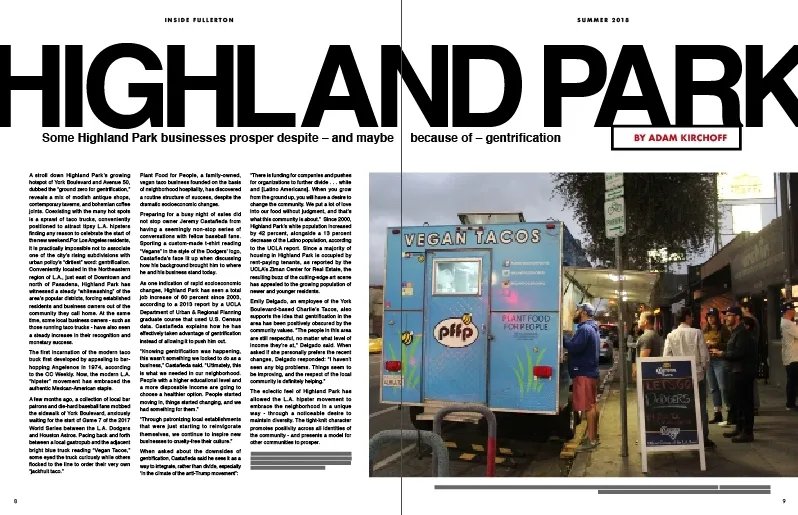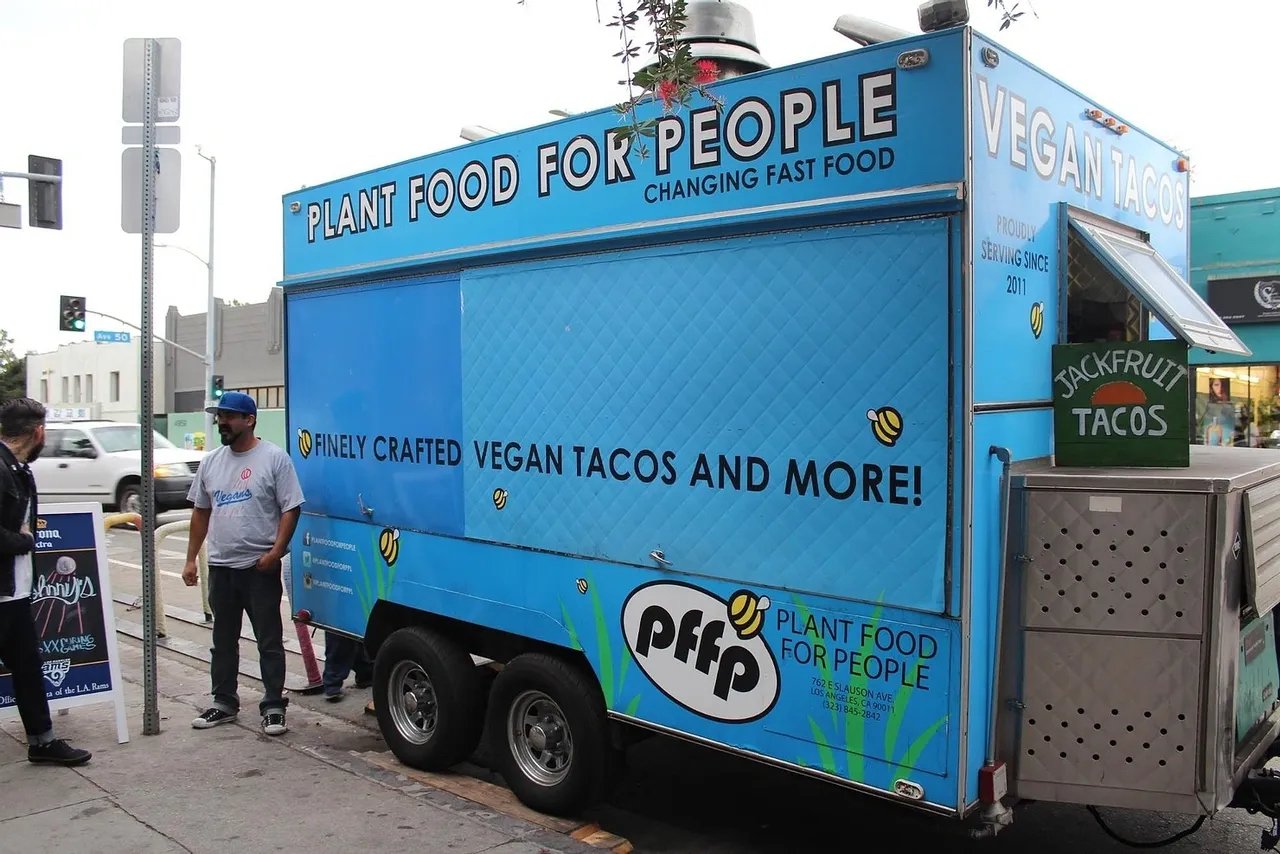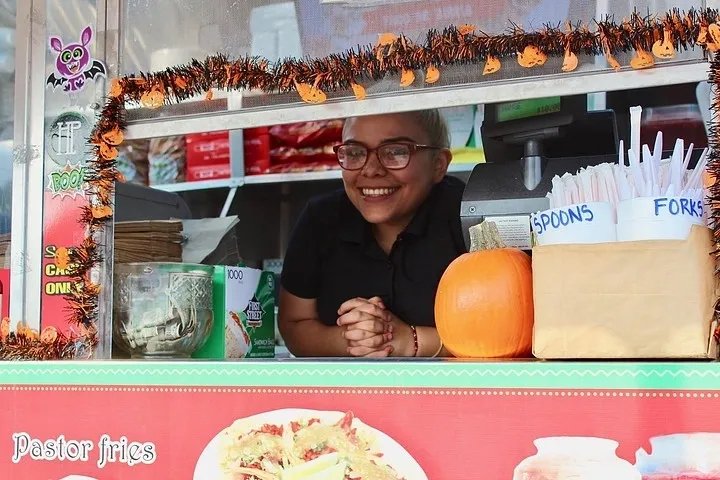Some Highland park businesses prosper despite—and maybe because of—gentrification
A stroll down Highland Park’s growing hotspot of York Boulevard and Avenue 50, dubbed the “ground zero for gentrification,” reveals a mix of modish antique shops, contemporary taverns, and bohemian coffee joints. Coexisting with the many hot spots is a sprawl of taco trucks, conveniently positioned to attract tipsy L.A. hipsters finding any reason to celebrate the start of the new weekend.
For Los Angeles residents, it is practically impossible not to associate one of the city’s rising subdivisions with urban policy’s “dirtiest” word: gentrification. Conveniently located in the Northeastern region of L.A., just east of Downtown and north of Pasadena, Highland Park has witnessed a steady “whitewashing” of the area’s popular districts - forcing established residents and business owners out of the community they call home. At the same time, some local business owners - such as those running taco trucks - have also seen a steady increase in their recognition and monetary success.
The first incarnation of the modern taco truck first developed by appealing to bar-hopping Angelinos in 1974, per the OC Weekly. Now, the modern L.A. “hipster” movement has embraced the authentic Mexican-American staple.
On a November evening, a collection of local bar patrons and die-hard baseball fans mobbed the sidewalk of York Boulevard, anxiously waiting for the start of Game 7 of the 2017 World Series between the L.A. Dodgers and Houston Astros. Pacing back and forth between a local gastropub and the adjacent bright blue truck reading “Vegan Tacos,” some eyed the truck curiously while others flocked to the line to order their very own “jackfruit taco.”
Plant Food for People, a family-owned, vegan taco business founded on the basis of neighborhood hospitality, has discovered a routine structure of success, despite the dramatic socioeconomic changes.
Preparing for a busy night of sales did not stop owner Jeremy Castañeda from having a seemingly non-stop series of conversations with fellow baseball fans. Sporting a custom-made t-shirt reading “Vegans” in the style of the Dodgers’ logo, Castañeda’s face lit up when discussing how his background brought him to where he and his business stand today.
According to the Longitudinal Employer-Household Dynamics program, Highland Park has seen a total job increase of 60 percent since 2003, an indication of the rapid socioeconomic changes. Castañeda explains how he has effectively taken advantage of gentrification instead of allowing it to push him out.
“Knowing gentrification was happening, this wasn’t something we looked to do as a business,” Castañeda said. “Ultimately, this is what we needed in our neighborhood.
People with a higher educational level and a more disposable income are going to choose a healthier option. People started moving in, things started changing, and we had something for them. Through patronizing local establishments that were just starting to reinvigorate themselves, we continue to inspire new businesses to cruelty-free their culture.”
When asked about the downsides of gentrification, Castañeda said he sees it as a way to integrate, rather than divide, especially in the current political climate.
“There is funding for companies and pushes for organizations to further divide . . . white and [Latino Americans]. When you grow from the ground up, you will have a desire to change the community. We put a lot of love into our food without judgment, and that’s what this community is about.”
Still, gentrification has hit the town forcefully. Since 2000, Highland Park’s white population increased by approximately 42 percent, alongside an approximate 13 percent decrease of the Latino population, according to a 2013 report by UCLA's Department of Urban & Regional Planning. Despite the realities of tenants being forced out, the community perseveres and maintains its spirit. Since rent-paying tenants occupy a majority of housing in Highland Park, as reported by UCLA's Ziman Center for Real Estate, the buzz of the cutting-edge art scene appeals to the growing population of newer and younger residents.
Emily Delgado, an employee of the York Boulevard-based Charlie’s Tacos, also supports the idea that gentrification in the area has been positively obscured by the community values.
“The people in this area are still respectful, no matter what level of income they’re at,” Delgado said. When asked if she personally prefers the recent changes, Delgado responded: “I haven’t seen any big problems. Things seem to be improving, and the respect of the local community is definitely helping.”
The eclectic feel of Highland Park has allowed the L.A. hipster movement to embrace the neighborhood in a unique way - through a noticeable desire to maintain diversity. The tight-knit character promotes positivity across all identities of the community - and presents a model for other communities to prosper.


